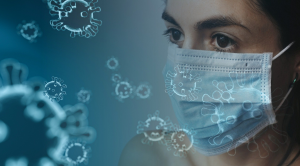
In a 2015 review of the research literature, the selenium researchers Holger Steinbrenner and Helmut Sies from the Heinrich-Heine-University in Düsseldorf, Germany, give an overview of the effect of selenium status and supplementation in infectious diseases caused by viruses (e.g. HIV, influenza A virus, hepatitis C virus, polio virus, West Nile virus) and bacteria (e.g. M. tuberculosis, Helicobacter pylori) [Steinbrenner 2015].
- Deficient intake and status of the essential trace element selenium are associated with viral and bacterial infections.
- In the absence of adequate selenium status, otherwise benign strains of Coxsackie viruses and influenza viruses can mutate to highly virulent strains.
- Nutritional supplementation with selenium supply to boost selenium status seems to confer health benefits for patients suffering from some viral diseases, in particular patients with HIV and influenza A virus infections.
- Multi-micronutrient supplements containing selenium have been shown to improve several clinical and lifestyle variables in patients co-infected with HIV and Mycobacterium tuberculosis.
- Selenium status may affect the function of cells of both adaptive and innate immunity.
- Supplemental intakes of selenium are associated with the enhanced proliferation and differentiation of naive CD4-positive T lymphocytes toward T helper 1 cells, thereby supporting the acute cellular immune response.
- Similarly, supplemental intakes of selenium are associated with the directing of macrophages toward the M2 type, thereby counteracting the excessive activation of the immune system with resulting host tissue damage.
- Data from epidemiological studies and intervention trials, with selenium administered alone or in combination with other micronutrients have shown that selenium status and intake affect immune system functions.
Selenium Status and Intake
In her 2012 review article in The Lancet, the selenium researcher Margaret P. Rayman points out that selenium intakes average 40 micrograms/day in Europe compared with 93 micrograms/day for women and 134 micrograms/day for men in the United States. Nutritional supplements can provide an additional 50–200 micrograms of selenium per day [Rayman 2012].

